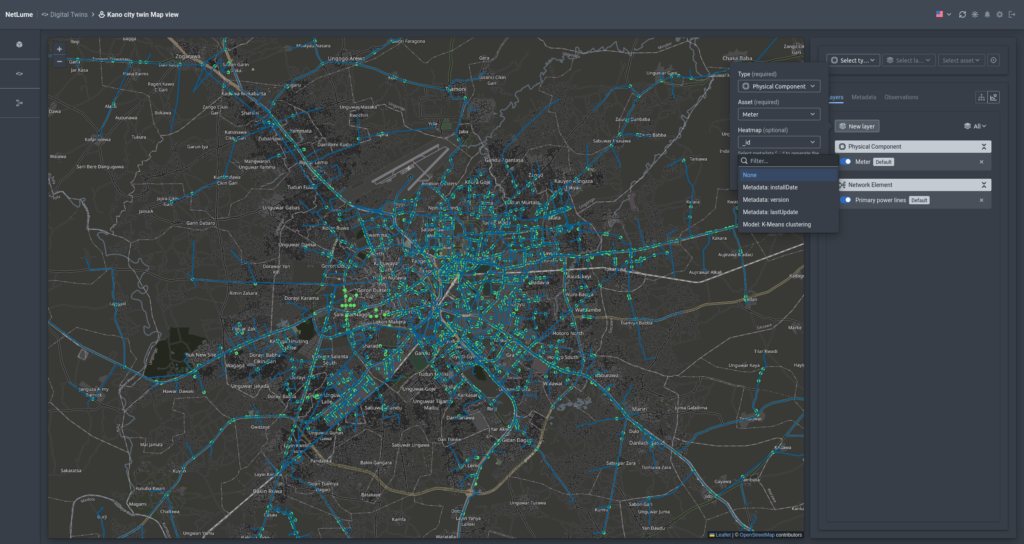
The world of supply chain and logistics is undergoing a significant transformation, thanks to the power of the Internet of Things (IoT). This technology is enabling companies to streamline operations, enhance visibility, and ultimately improve the efficiency of their supply chains. In this article, we will explore the key role IoT plays in revolutionizing the supply chain and logistics industries, and we’ll also take a closer look at how NetLume, as an IoT leader, is contributing to this transformation.
The Impact of IoT in Supply Chain and Logistics:
The adoption of IoT in the supply chain and logistics sectors is reshaping the way companies manage their operations. Here are some of the profound impacts:
- 1. Real-time Monitoring and Tracking:
One of the most significant advantages of IoT systems is the ability to collect, transmit, and analyze data in real time using specialized sensors. This real-time data collection makes it easy to oversee and organize the transportation of goods, ensuring timely and efficient deliveries. IoT solutions in supply chain management enable professionals to promptly assess the products in stock and their condition, react quickly to any changes in the status of orders, and more. - 2. Enhanced Visibility:
IoT affects every phase of the supply chain, from raw material suppliers to retailers. IoT devices collect information on variables affecting deliverables’ timely availability, whether it’s monitoring livestock health for farming, logging operations for forestry, or crop health for agriculture. Retailers also benefit from IoT by improving inventory control, tracking customer activity, and enhancing material handling. - 3. Inventory Management Improvement:
IoT enables companies to track and control their inventory effectively. With IoT-enabled inventory systems, businesses can monitor supply levels in real-time, obtain insights into the status of their inventory, make informed decisions, and prevent product shortages. Additionally, IoT helps predict future inventory requirements, monitor product conditions, and update asset information without manual intervention. - 4. Monitoring of Storage Conditions:
Environmental sensors developed by IoT in transport and logistics allow management to monitor cargo conditions and take immediate action when something changes. For example, IoT systems collect information on factors like pressure, humidity, and temperature inside vehicles, which is crucial to maintaining the integrity of goods during transportation. - 5. Automation:
IoT is empowering automation in supply chain management. Drones and remote monitoring systems are being utilized to track logistics status, manage warehouses, and reduce the need for manual labor, thereby increasing efficiency and reducing human error. - 6. Regulatory Compliance:
IoT assists companies in maintaining regulatory compliance and preventing litigation. IoT-based systems provide a digital audit trail with precise timestamps and accurate reports, which is vital for complying with local legal and regulatory obligations. - 7. Better Segmentation:
Retailers are combining IoT and supply chain management to understand their products, consumers, and demand better. Data gathered during the product cycle aids in market research and allows for effective product segmentation with the target market in mind. - 8. Fleet Management:
IoT solutions in fleet management help businesses streamline their workflow by providing real-time data on the availability and condition of each vehicle. These IoT tools are incorporated into complex systems to ensure efficient fleet operations. - 9. Increased Team Collaboration:
IoT-based solutions break down data silos by utilizing cloud and data analytics services, providing one version of the truth to all teams along the value chain. This improves teamwork, helps resolve issues more quickly, and enhances overall efficiency. - 10. Improved Customer Relationship Management (CRM):
Companies are leveraging IoT to offer specialized customer-facing apps that allow customers to track the delivery of their orders via GPS, view the status of their orders, and gain more transparency into the delivery process. This builds trust and enhances customer satisfaction. - 11. Improved Flexibility:
IoT provides in-depth insights into the movement of goods, helping businesses make informed decisions about product orders and reducing the impact of human error in shipping, asset tracking, and on-road navigation.
Examples of IoT Transforming Supply Chain and Logistics:
- 1. Amazon:
Amazon has automated its warehouse operations with the help of IoT robots. These robots navigate warehouse floors, helping with inventory management and making the process more efficient. Amazon also uses IoT for fleet management and real-time monitoring of delivery processes. - 2. NJTA – New Jersey Transport Authority:
The NJTA is using IoT and data to better manage vehicular traffic and improve roadway safety. IoT sensors provide real-time data that emergency services and traffic management operators use to reduce congestion and respond to accidents more effectively. - 3. Volvo:
Volvo employs IoT to automate the movement of containers on ships. A cloud-based system tracks the delivery of auto parts worldwide, providing real-time data on temperature, humidity, and location. This IoT-based system helps prevent the deterioration of perishable cargo.
How NetLume is Pioneering IoT in Supply Chain and Logistics:
NetLume is at the forefront of the IoT revolution in supply chain and logistics. As an All-In-One Data platform for AI applications and Industrial IoT, NetLume offers a comprehensive suite of tools and features that empower companies to harness the full potential of IoT technology.
NetLume allows businesses to model their domains with a user-friendly No-Code and Low-Code approach. Users can define the main components of their supply chain or logistics operations, connect them, and configure connectors for data ingestion.
Some key contributions of NetLume to the industry include:
- Rapid Prototyping: NetLume enables rapid prototyping of assets and systems with a drag-and-drop approach, making it easier for companies to test and optimize their supply chain and logistics models.
- Real-time Monitoring: The platform offers a highly customizable map visualization for real-time network monitoring, allowing companies to track their assets and operations in real time.
- Custom Dashboard Design: NetLume provides a rich library of visualizations and tools for customized dashboard design, automated report generation, and notifications, ensuring that businesses have the insights they need at their fingertips.
- Lifecycle Management: NetLume simplifies the lifecycle management of connected solutions, providing a unified and automated approach to managing IoT devices and systems.
- Low-Code to No-Code AI Modeling: NetLume offers a complete low-code to no-code interface to design AI models and data pipelines, making it accessible and efficient for businesses to leverage AI in their supply chain and logistics operations.
Conclusion:
The Internet of Things is revolutionizing the supply chain and logistics industries, offering real-time monitoring, enhanced visibility, and improved efficiency. Companies like Amazon, NJTA, and Volvo have already harnessed the power of IoT to streamline their operations. NetLume, as a leader in IoT technology, is providing a comprehensive platform that empowers businesses to model, monitor, and optimize their supply chain and logistics operations with ease. The future of supply chain and logistics is increasingly intertwined with IoT, and NetLume is leading the way in this transformative journey.
